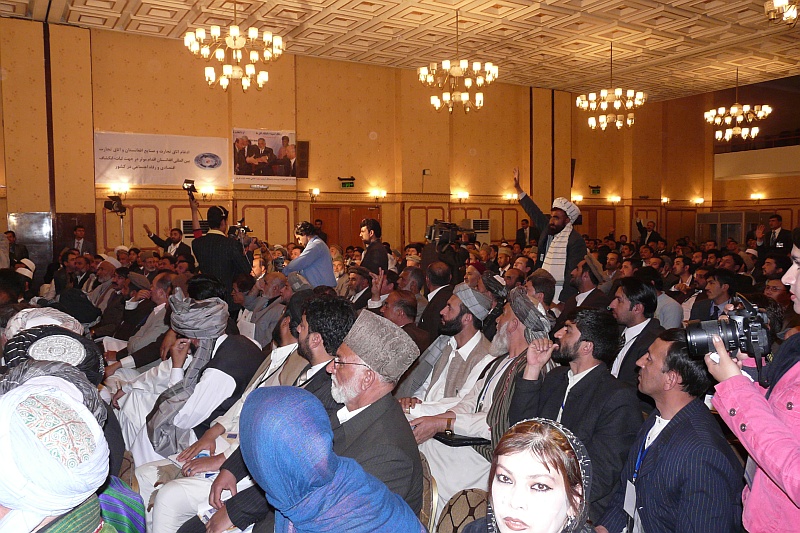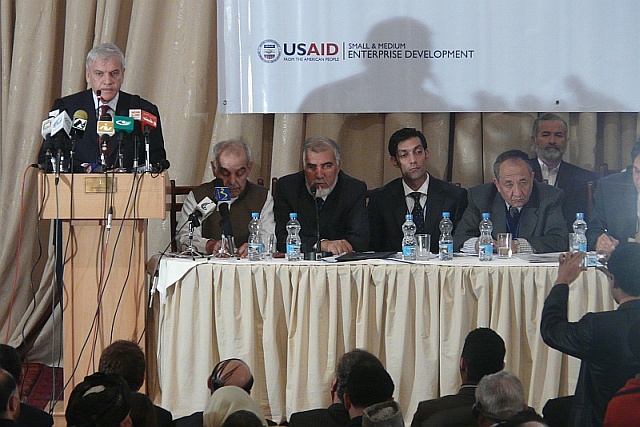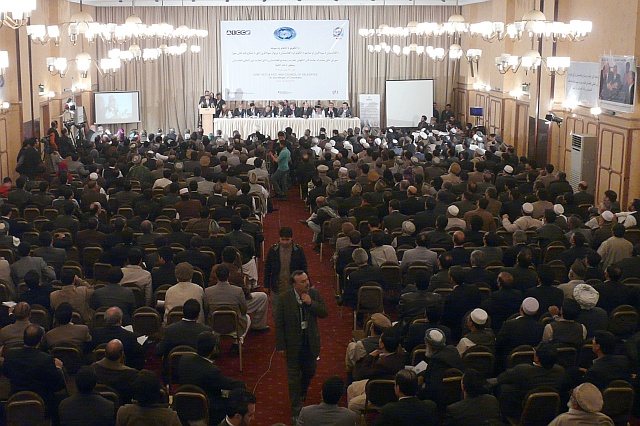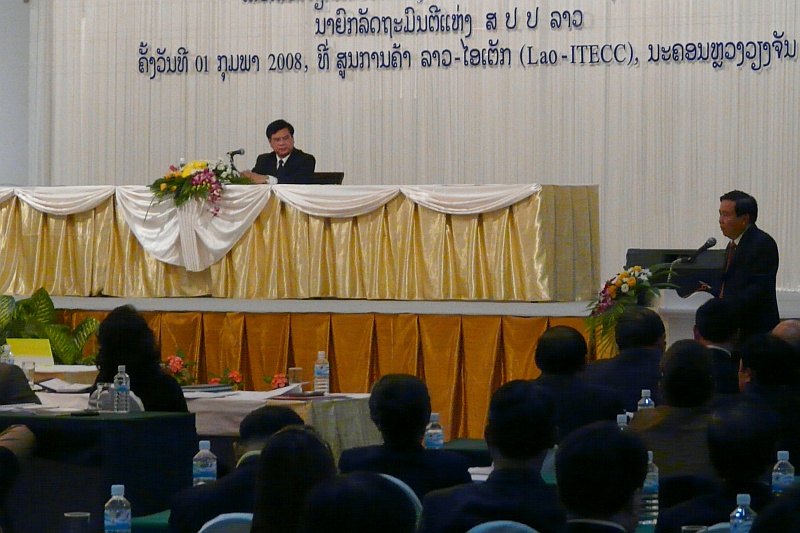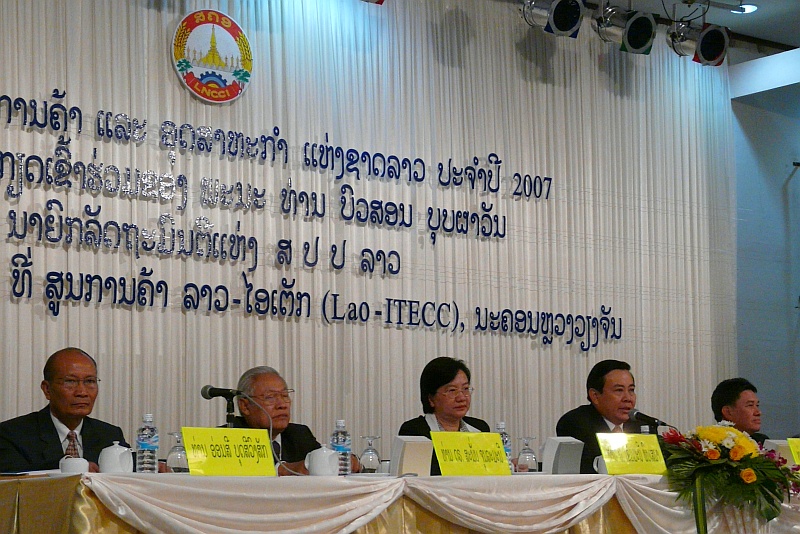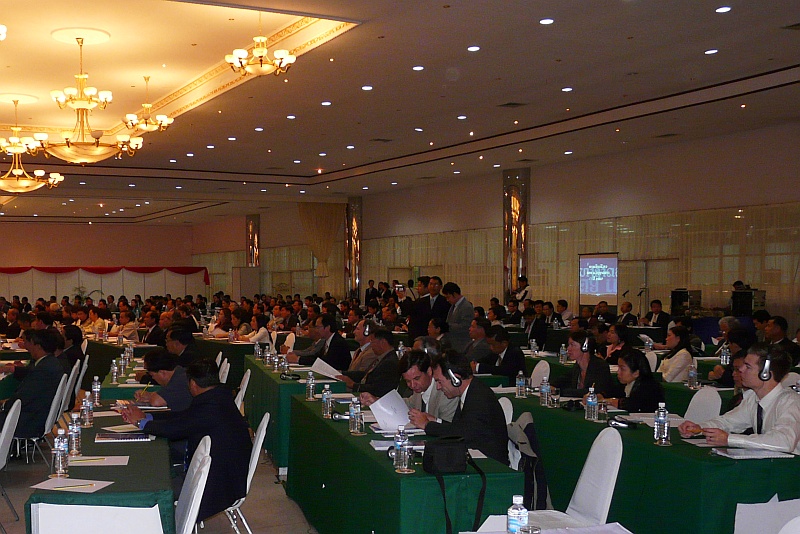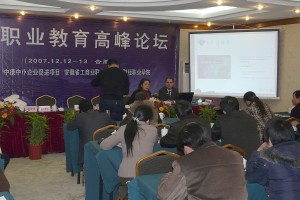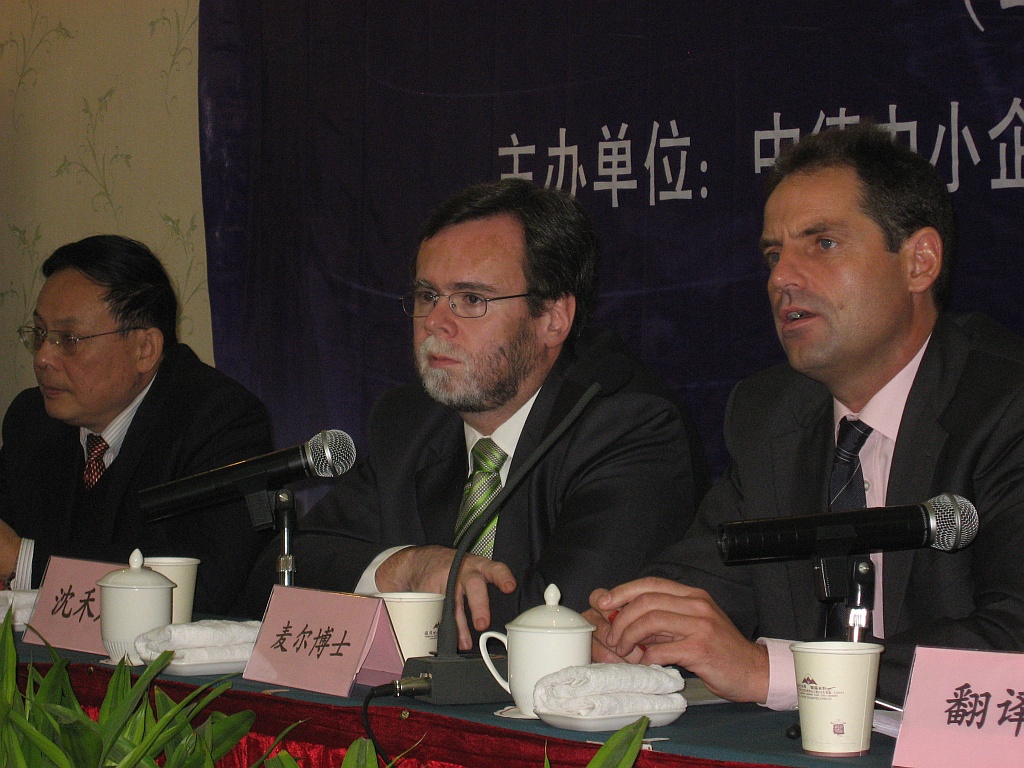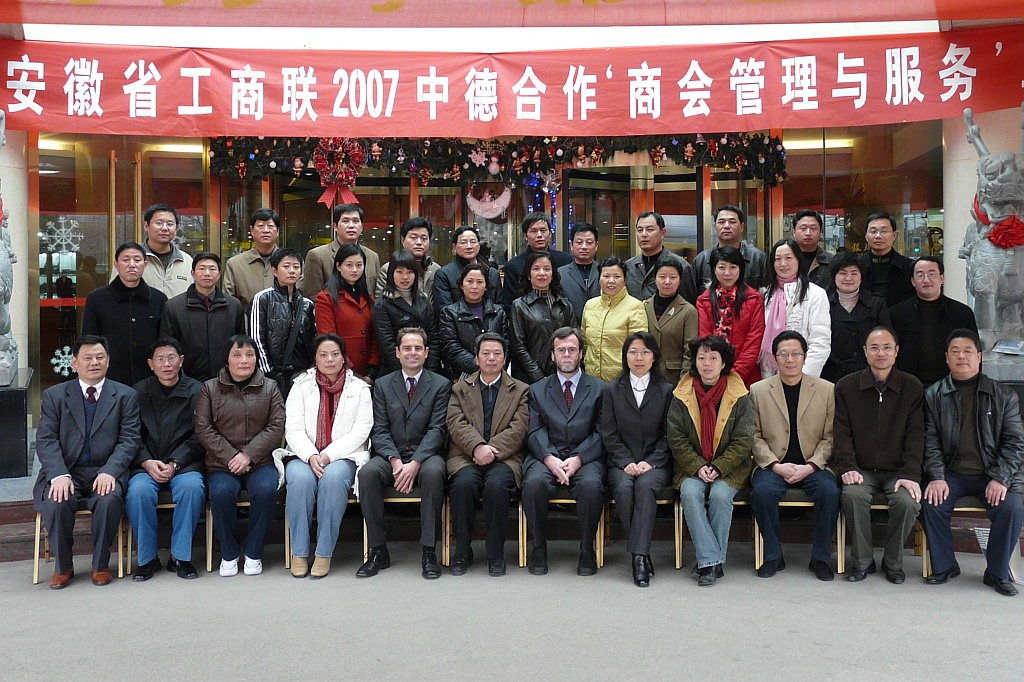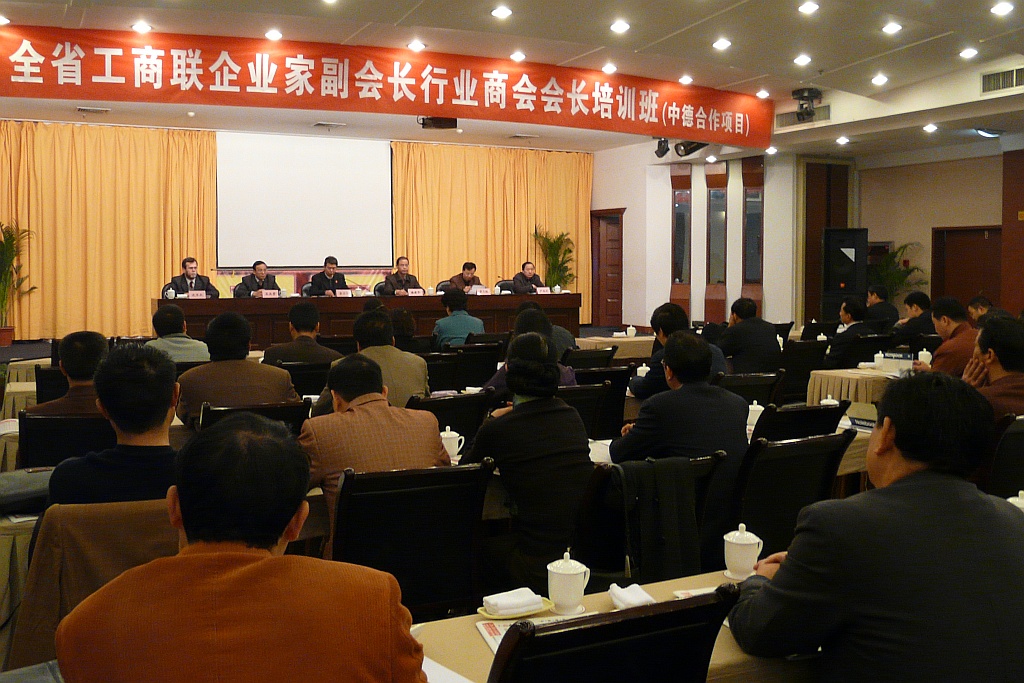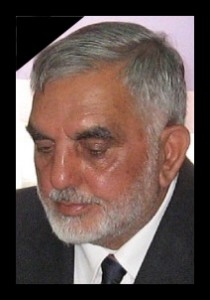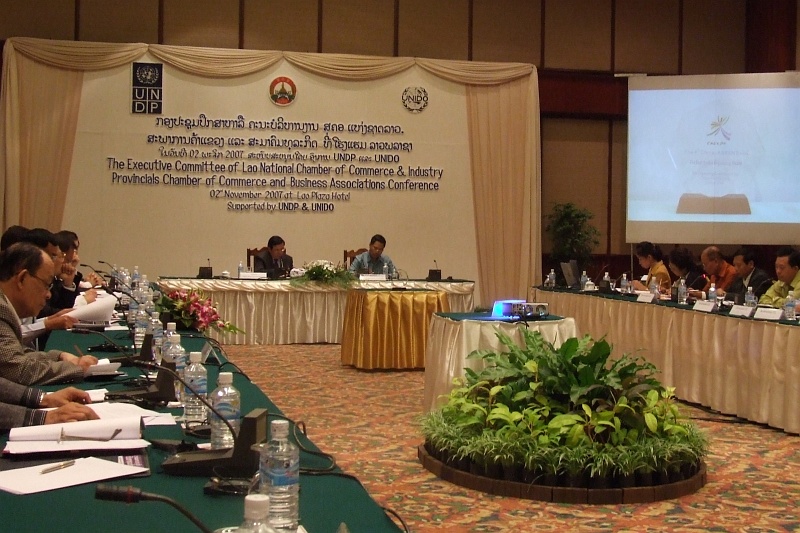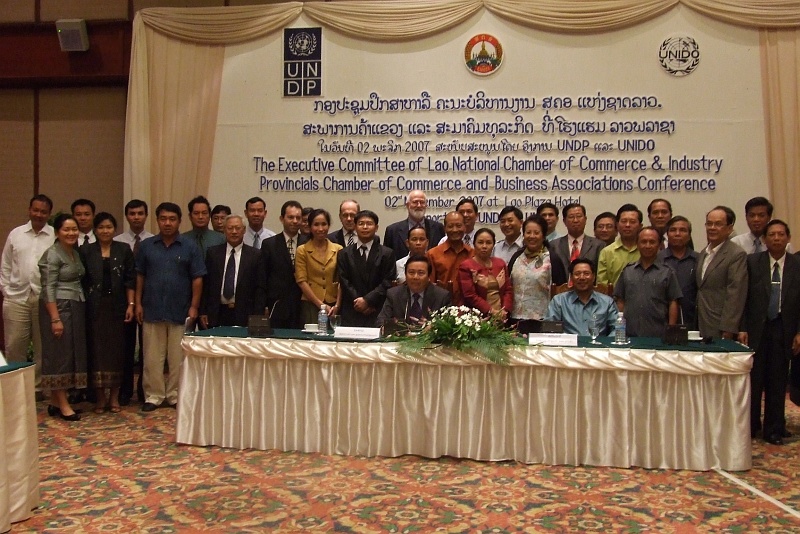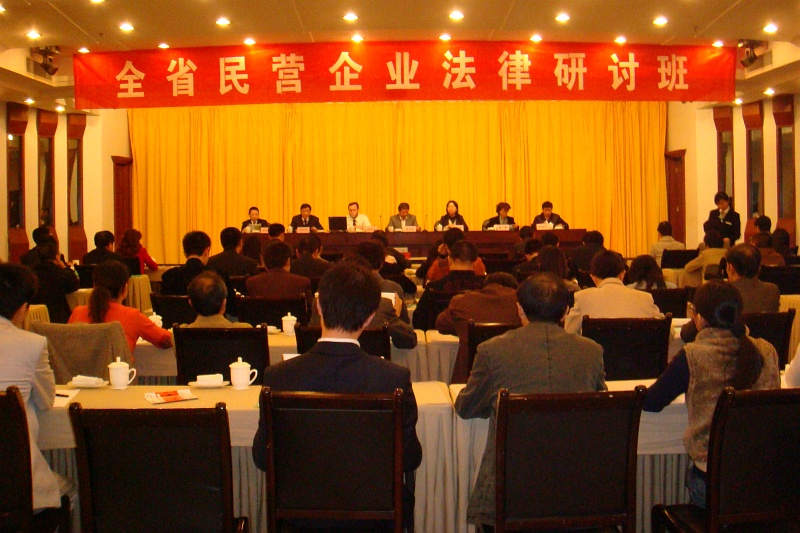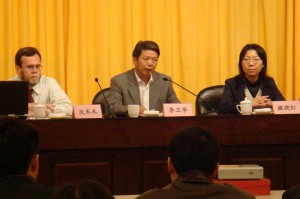Business Community Achieves Unity
Nearly 500 top business community representatives from all provinces of Afghanistan assembled in Kabul on March 9th, 2008, to set a strong signal for private sector development by establishing a new, united Afghanistan Chamber of Commerce and Industries (new ACCI). They formally confirmed the merger of the two former chambers, the Afghan Chamber of Commerce and Industries (former ACCI) and the Afghanistan International Chamber of Commerce (former AICC).
The assembly, chaired by Hakim Malyar, also discussed and agreed on a transitional by-law. The delegates of the private sector elected a temporary Board of Elders to decide on the transitional leadership of the new chamber until democratic elections have been carried out in all provinces. The elders decided to ask the complete Chamber Merger Committee (CMC), that had prepared the assembly, to act as Transitional Board of Directors of the new ACCI. Mahmood Karzai, Chairman of the CMC, will be the Transitional President, and CMC Head of Secretariat, Mohammad Qurban Haqjo, will be the Transitional Chief Executive Officer.
Minister of Commerce and Industry, Dr. Mir Mohammad Amin Farhang, expressed his full support for the new ACCI, but also promised that the government will not get involved in its internal affairs. “The new chamber must represent the democratic decisions of the business community vis-a-vis the public, foreign organizations and businesses, and also vis-a-vis the government”, he told the entrepreneurs. “This chamber is your own house!” He also suggested for the new ACCI to join international chamber organizations such as the Islamic Chambers of Commerce and Industry as soon as possible.
The ambassadors of Germany, Dr. Hans-Ulrich Seidt, and of Saudi-Arabia, Said Ghorm Malhan, were honorable guests of the assembly. The USA and Germany have been supporting a strong, efficient, and representative chamber system in Afghanistan for several years. Their development agencies were represented by Zdravko Sami of USAID and Shafic Gawhari of GTZ. The presidents of Afghanistan Investment Support Agency, Omar Zakhilwal, and of the Export Promotion Agency of Afghanistan, Suleman Fatimie, representatives of international organizations and of the national and international media also participated as observers in the meeting.
The assembly was a joint session of all elected delegates of the former ACCI and the former AICC, extended by numerous well-known private sector representatives who were previously not affiliated with either chamber. New ACCI President Karzai appreciated the strong engagement of the entire business community. He explained that the CMC was surprised by the enormous interest in the new chamber. “Until the last day before the assembly session, we kept receiving requests of business groups and famous entrepreneurs of all provinces to be included in the new chamber. Of course we are very happy about their interest, and despite our difficulty to organize these last-minute changes, we did not want to turn them down.” In a controversial discussion, regional and sectoral interest groups within the business community had voiced their concern about appropriate representation in the first regularly elected leadership organs of the new chamber.
The assembly unanimously passed a resolution requesting the transfer of all property owned by the former chambers to the new ACCI. The former ACCI had used contributions of the business community over decades to acquire considerable assets, which have not yet been returned by the government. The new Board of Directors plans to discuss the issue with Afghanistan’s President Hamid Karzai within a few days.
The transitional leadership of the new chamber plans to establish election rules and to organize democratic elections for the regional chambers’ boards of directors as soon as possible. Transitional CEO Haqjo confirmed in an interview that he strives to complete the merger of organizational structures and full-time staff of the former ACCI and the former AICC before the first regularly elected Board of Directors takes office. He appealed to the international donor community to continue supporting this effort.
